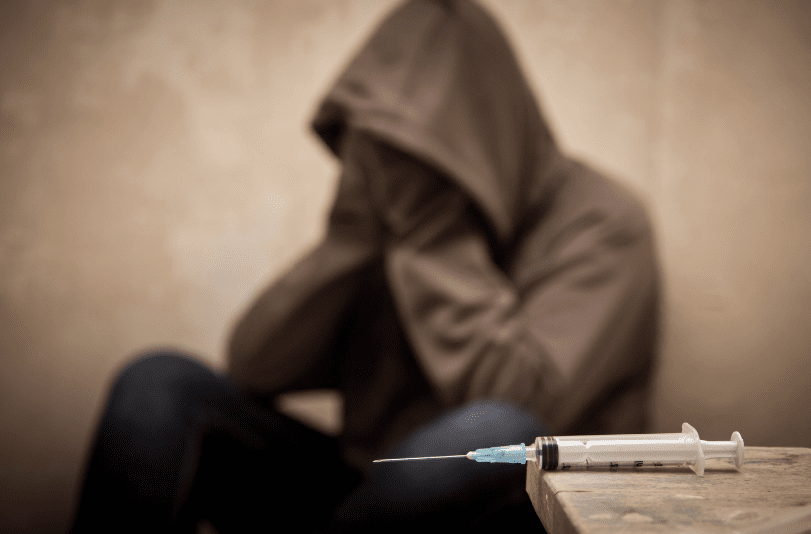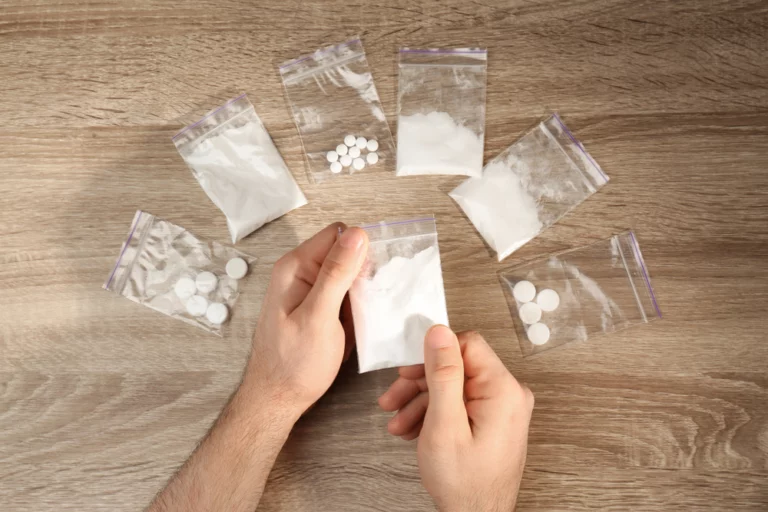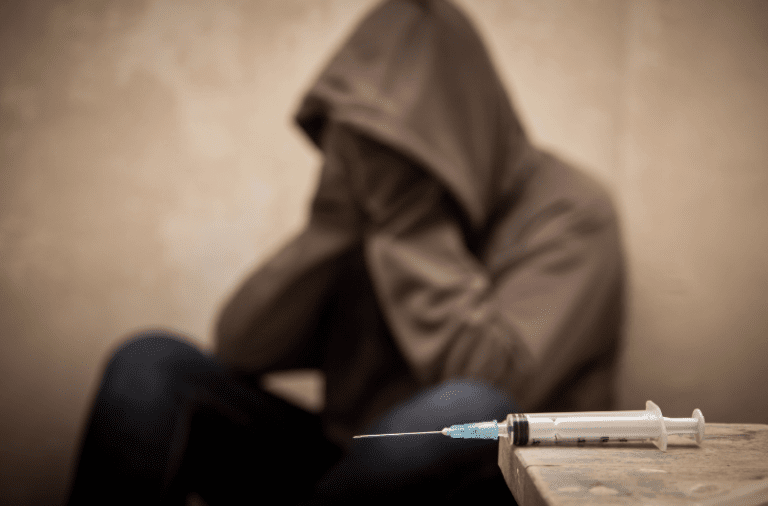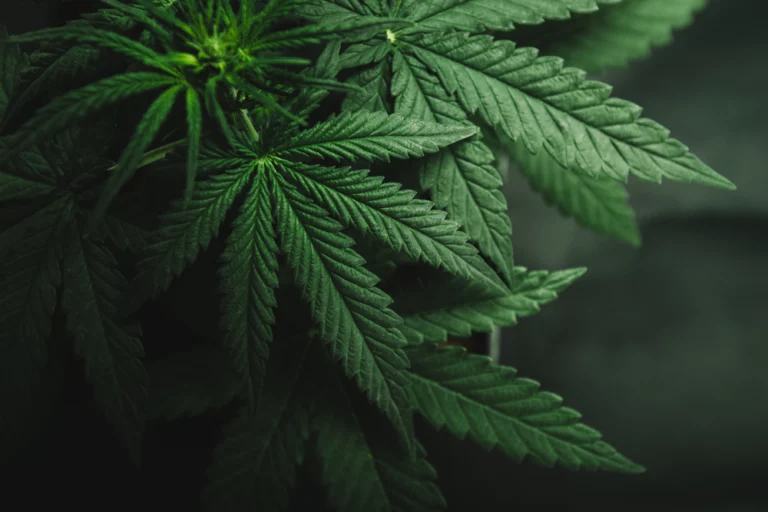Can Heroin Addiction Cause PTSD?
Experiences with untreated trauma can lead to post-traumatic stress disorder (PTSD). Those who have had substance abuse disorders (SUDs), including heroin addiction, are at an increased risk for experiencing traumatic events and situations that can lead to PTSD. Heroin addiction leads people to make poor decisions such as stealing and causing emotional and physical harm to others. It can be difficult to find ways to forgive yourself for the choices you have made while under the influence.
Treatment at a high-quality facility can help you find a path forward and provide you with ways to cope with your difficult past. Trauma-focused therapy is designed to help you recover from traumatic experiences and PTSD to learn techniques that can help you find healthy coping mechanisms that allow you to live a more positive life in sobriety.
Signs of Heroin Addiction
There are many signs that someone has formed a heroin addiction. It’s important to be aware of these signs to know if someone is abusing substances or has formed an addiction. Another reason to pay close attention to the signs and symptoms of drug abuse and addiction is if a person is at risk for relapse. Maintaining sobriety is a life-long battle. Those who have completed treatment plans remain at risk for relapse and diligence is needed to ensure lasting recovery.

Like other substance abuse disorders, there are common red flags that indicate a person may have developed a problem with drug abuse. Signs include but are not limited to:
- Increased insistence on privacy
- Becoming isolated and withdrawn
- Deceptive activity
- Sudden weight loss
- Constipation is a common sign of general opiate use
- Slurred speech
- Problems with coordination
- Flu-like symptoms
There are very real and troubling physical changes that can happen to a person’s body who has abused heroin for a long time.
Physical signs and symptoms associated with heroin abuse can include:
- Change in complexion
- Sleep problems
- Respiratory issues
- Sexual dysfunction
- Sudden, extreme weight loss
- Teeth deterioration
- Skin pockmarks
- Sores on lips and around nostrils
- This is especially common if someone is smoking heroin
- Burn marks on fingers or mouth
- Snorting heroin can cause nosebleeds
- Over time, snorting heroin causes permanent damage to the nasal passageway
- Injecting heroin leaves marks at the injection site
- These can appear as small bruises
- Over time, injection heroin results in collapsed veins
- Skin infections
- May appear in the form of open wounds called abscesses
- Weakened immune system
- Arthritis
- Brain damage
- Liver or kidney disease
If medical issues remain untreated, a person who abuses heroin is at risk for extreme medical issues that can lead to heart infections, blood infections, the potential for needing to amputate a limb, severe organ damage, and other severe complications.
Heroin and The Mind
Prolonged abuse of heroin and the development of heroin addiction can result in serious mental health consequences.
Psychological signs and symptoms that can be a sign of include:
- Anxiety
- Agitation
- Confusion
- Post-traumatic Stress Disorder (PTSD)
- Problems making rational decisions
The Link between Heroin Addiction and PTSD
There are many ways addiction can lead to post-traumatic stress disorder (PTSD). Heroin addiction can lead to people exposing themselves to situations that put them at personal risk or involvement in unsafe and frightening experiences.
As addiction progresses from mild to moderate or severe, a person is likely to spend more time and go to greater lengths to sustain their habit. Individuals who have had long-term addictions are more likely to face financial and legal issues. They may end up committing crimes including robbing family members in order to continue their habit. The cycle of abuse takes a massive toll on the person with an addiction, their personal relationships with loved ones and friends, and affects all aspects of their life. These negative experiences can all result in PTSD.
Your memories of poor decisions made while under the influence of heroin or as a result of heroin addiction can cause lasting harm to your personal relationships as well as your self-image and self-esteem. In order to move forward in your life, it is important to learn methods to manage trauma associated with addiction.
Therapy Options for Heroin Addiction and PTSD
Cognitive-behavioral therapy (CBT)
A wide range of therapy options is available for those who have had problems with addiction and also suffer from PTSD. Trauma-focused therapy is designed to assist those struggling with PTSD learn how to manage their symptoms and begin to move forward from their pain.
Cognitive-behavioral therapy (CBT) has been practiced for decades and is a form of talk therapy with a set number of sessions. In CBT therapy, clients work with a CBT-trained counselor to pinpoint specific issues they would like to work on. This goal-oriented approach allows CBT is part of what has made CBT a popular form of therapy. Another aspect is that insurance companies are more willing to pay for a form of treatment that can be closely monitored and has a set number of sessions.
Often, a person’s perceptions about themselves and their experiences are not entirely grounded in reality. In CBT therapy, counselors help clients learn to put their thoughts and behaviors in perspective to create a more realistic concept of how they present themselves to the world and how they are perceived by others. Learning how to identify behaviors and thoughts patterns that have a negative effect on your life and working to change these behaviors is an important part of CBT.
Life skills learned in CBT sessions can be applied to everyday situations to try to avoid exposure to high-risk triggers and learn to manage and lower your response to high-risk triggers when you do have to face them. CBT provides useful tools and actionable exercises geared towards helping individuals who are in recovery and who have mental health challenges learn to feel more confident about their choices.

Dialectical behavior Therapy (DBT)
Dialectical Behavioral Therapy (DBT) was initially designed to treat people who have personality disorders. DBT therapy is known to be one of the most helpful therapies for those who struggle with Borderline Personality Disorder (BPD).
More recently, the mental health community has realized that DBT therapy techniques have a broader range of utility that extends far beyond the exclusive use for those with personality disorders.
DBT involves a methodology that helps everyday people better organize their life. In DBT therapy sessions, DBT-trained counselors often provide homework assignments for patients to reflect on between sessions. DBT is useful for those who need to further develop their personal skills when it comes to time management and making healthy choices. DBT is an effective treatment for those who struggle with:
- Suicidal ideation
- Post-traumatic stress disorder (PTSD)
- Alcohol and substance abuse disorders
- Major Depressive Disorder (MDD)
Those who struggle with intense periods of depression and suicidal ideation are in need of therapeutic intervention to help safely manage their day-to-day lives. DBT can be used in conjunction with other harm reduction strategies to help those who struggle with suicidal thinking and other issues that require close medical observation and supervision. Those who experience suicidal thinking should reach out for help any time they need help. No one should feel shame or embarrassment about having negative thoughts. What is important is that you take care of yourself for the sake of those in your life who need you to keep yourself alive.
In DBT therapy, counselors use integrated psychotherapy methods to help individuals learn how to accept their personal situations. DBT therapeutic techniques are designed to manage negative thoughts and behaviors and learn ways to focus on positive thoughts and take a healthier approach to day-to-day life.
Eye movement desensitization and reprocessing (EMDR)
Eye movement desensitization and reprocessing (EMDR) is an increasingly popular form of trauma therapy that has been determined to be effective for treating a range of mental health disorders including PTSD. EMDR therapy aims to replace negative associations a person has with a traumatic event with associations that do not cause distress.
EMDR therapy can help those with PTSD unlearn and rewire their brain so that when a painful memory is recalled they do not have the unpleasant and distressing experience of reliving that experience in real-time.
Women with Addiction are at Increased Risk for PTSD
Women with addictions have often had traumatic experiences that involve men. Women with addictions may have been victims of physical or sexual violence by a male partner. In a traditional treatment program, where both men and women occupy the same spaces, it can be challenging for women to feel safe expressing themselves. Women who are struggling with PTSD or related symptoms may want to consider a gender-specific treatment program.
Women deserve to feel comfortable openly speaking about their personal experiences in a receptive and open environment. Studies show the importance of peer support in successful treatment and lasting recovery. Providing a safe space in group therapy sessions as well as general addiction treatment and recovery situations is an important aspect for ensuring that women can focus on themselves and thrive in sober life.
A woman who has experienced traumatic events and experiences as a result of her addiction may feel more comfortable working with a female therapist. Trauma-focused therapy works best when clients feel they have a positive and receptive relationship with their counselor. Providing a comfortable and secure setting for women to undergo addiction treatment and therapy helps provide more opportunities for a successful recovery and long-term sobriety.

Contact Us Today about Resources for Addiction and PTSD
It’s important to know that recovery is always possible. Even those who have had long-term heroin addictions are able to cease drug abuse and create meaningful and purposeful lives in sobriety.
Trauma often compounds over time. Because there is a strong link between addiction and PTSD, those who have struggled with drug abuse and addiction should seek counseling with a trained mental health therapist. Facing trauma is never easy, however, it is difficult to move forward with your life unless you face your demons.
Anonymous programs like NA can be a terrific resource for those who have had heroin addictions. In certain instances, medication management and medication-assisted therapy (MAT), which can include the use of methadone, suboxone, and naltrexone, can be a reasonable part of a treatment plan. Mental health counseling combined with treatments for physical rehabilitation can help get a person’s mind and body back to a point where they can make rational choices towards moving forward with their life.
Contact Oasis recovery today and take back your life. You do not have to struggle with heroin addiction alone.






